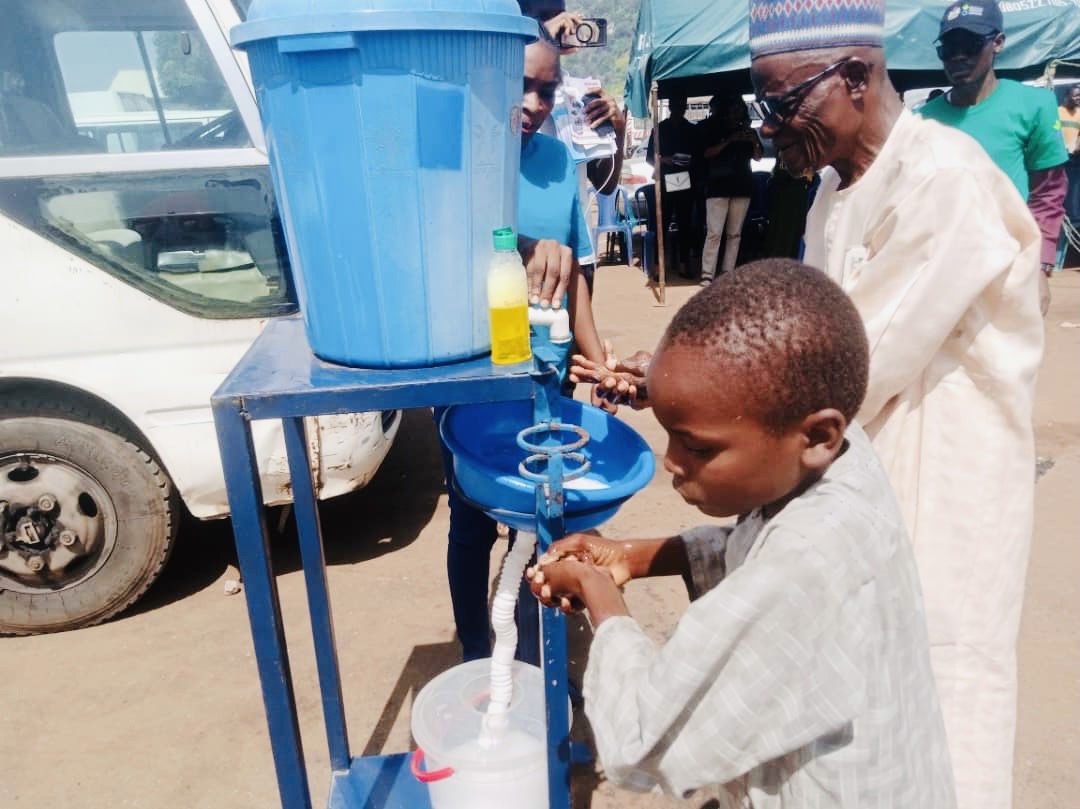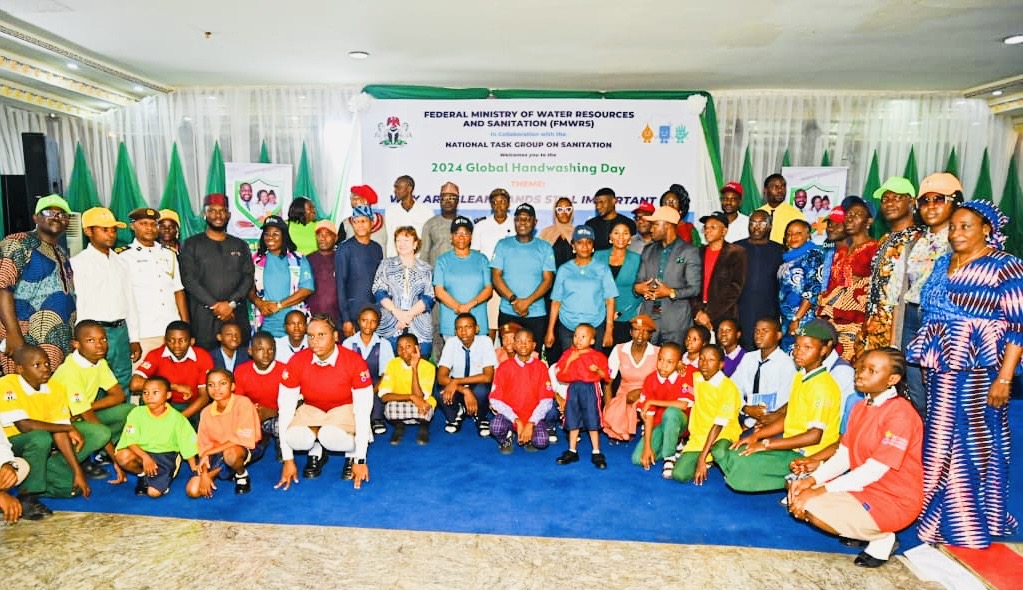FG unveils hand hygiene campaign in Zuba motor park, market
By Tosin Kolade
The Federal Government has commenced a sanitation and hygiene awareness campaign at Zuba market and motor park, to mark the 2024 Global Handwashing Day.
Led by the Federal Ministry of Water Resources and Sanitation, the campaign aims to promote proper handwashing practices to reduce disease spread in busy public spaces.
Mrs Ayaba Kogbara, Desk Officer for Hygiene Promotion in the ministry, noted the importance of regular handwashing to prevent illnesses like diarrhea and respiratory infections, which are prevalent in crowded areas.
She encouraged market and park visitors to adopt consistent hygiene practices, saying that handwashing with soap was “one of the most effective ways to protect both personal and public health”.
According to her, the campaign is part of a broader national initiative to raise hygiene standards and ensure community wellbeing through simple, preventive measures.
“Global Handwashing Day is a crucial reminder that something as simple as washing our hands with soap can save lives.
“Handwashing has been shown to reduce diarrheal diseases by 50 per cent and respiratory infections by 25 per cent.
”Making it one of the most effective ways to prevent illness, especially in crowded areas like markets and parks,”she said.
Kogbara said that Global Handwashing Day, observed annually on Oct. 15, serves as a platform to promote better hygiene practices worldwide.
She added that handwashing not only benefits individual health, but also supports community wellbeing by reducing diseases spread.
“In places like markets and parks, where people frequently come in contact with shared surfaces, practicing proper hand hygiene becomes even more critical.
“By washing our hands regularly, we protect not only ourselves but our families and communities as well,” she said.
Kogbara outlined the “five routes of germ spread” commonly known as the “Five F’s”: fingers, flies, fields, food, and feet.
She said that each route could lead to contamination and illness.
“Our hands, or ‘fingers,’ are a primary way germs enter our bodies, especially if we don’t wash them properly after touching contaminated surfaces or food,” she said.
She noted that flies carry germs from waste to food and surfaces, while “fields,” or areas where waste are disposed of, could spread contaminants to the environment, food, and water if not properly managed.
Discussing preventive steps, Kogbara stated the importance of washing hands thoroughly for at least 20 seconds and scrubbing all parts, including the back of the hands and under the nails.
She also encouraged the public to wash fruits and vegetables before consumption, particularly in market settings where produce was frequently handled.
“Proper handwashing and food safety go hand-in-hand to protect our health and that of our communities,” Kogbara stated.
She stressed the ministry’s commitment to promoting hygiene in public spaces, adding that “Hand hygiene, when combined with food safety and proper sanitation, creates stronger foundation for public health.
“This also helps to prevent the spread of illness both in our communities and at home,” she said.
The News Agency of Nigeria (NAN) reports that Global Handwashing Day, observed annually on Oct. 15, is a United Nations-designated day aimed at raising awareness about the importance of handwashing with soap.
It seeks to promote local, national and global actions to foster a culture of handwashing as an effective and affordable way to prevent diseases and save lives.
The event featured symbolic handwashing practices and training for all attendees.
Information, Education, and Communication (IEC) materials were also distributed in various languages to enhance understanding. (NAN) www.nannews.ng
Edited by Dorcas Jonah and Abiemwense Moru





 Dr Jane Bevan, UNICEF Chief of Water, Sanitation, and Hygiene (WASH), raised concerns over Nigeria’s low handwashing rates, with only 17 percent of the population practicing proper handwashing at critical times.
Dr Jane Bevan, UNICEF Chief of Water, Sanitation, and Hygiene (WASH), raised concerns over Nigeria’s low handwashing rates, with only 17 percent of the population practicing proper handwashing at critical times. Mr Nanpet Chuktu, a representative from WaterAid, emphasised the effectiveness of handwashing with soap and water in preventing diseases and saving lives.
Mr Nanpet Chuktu, a representative from WaterAid, emphasised the effectiveness of handwashing with soap and water in preventing diseases and saving lives. 